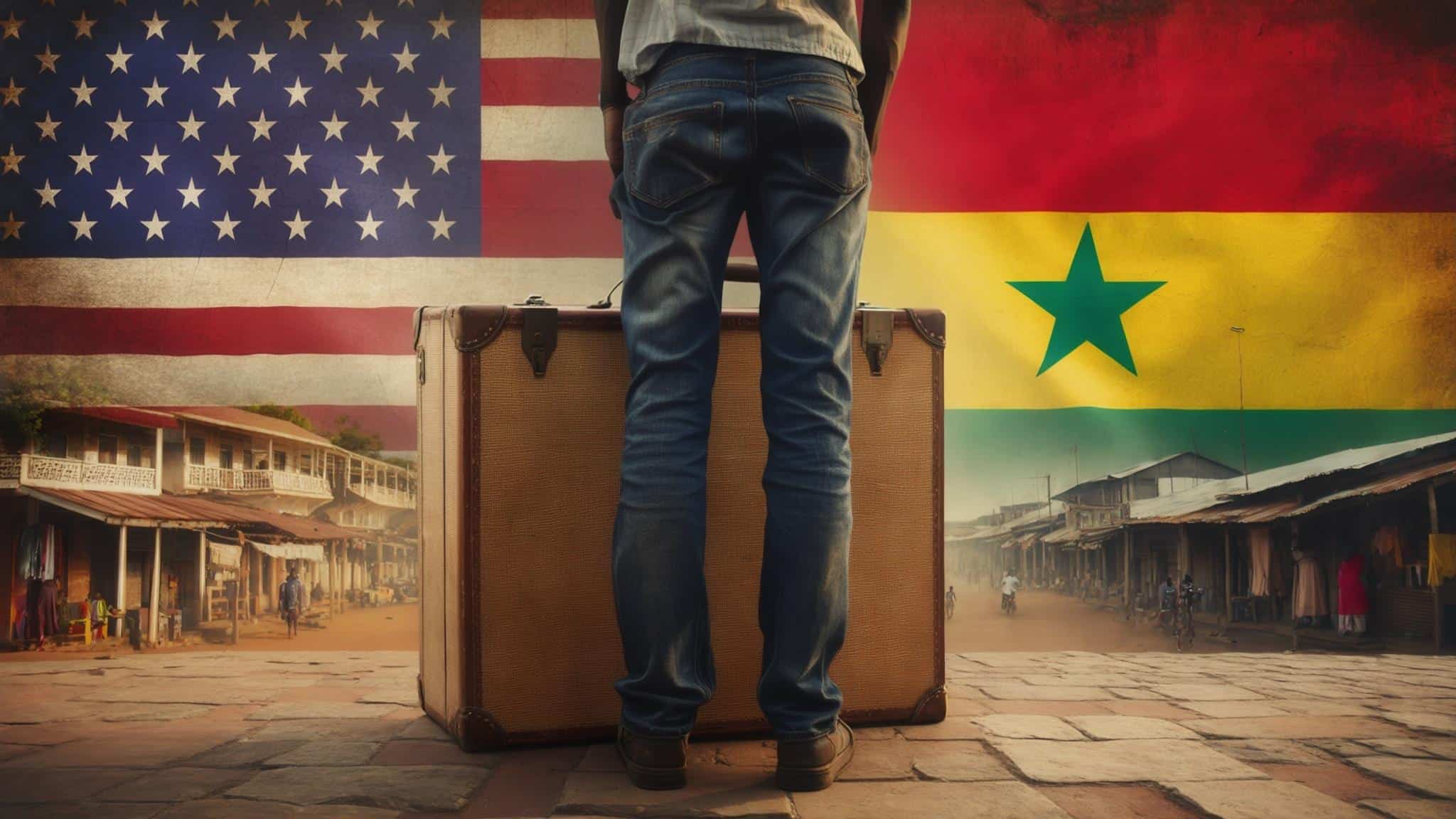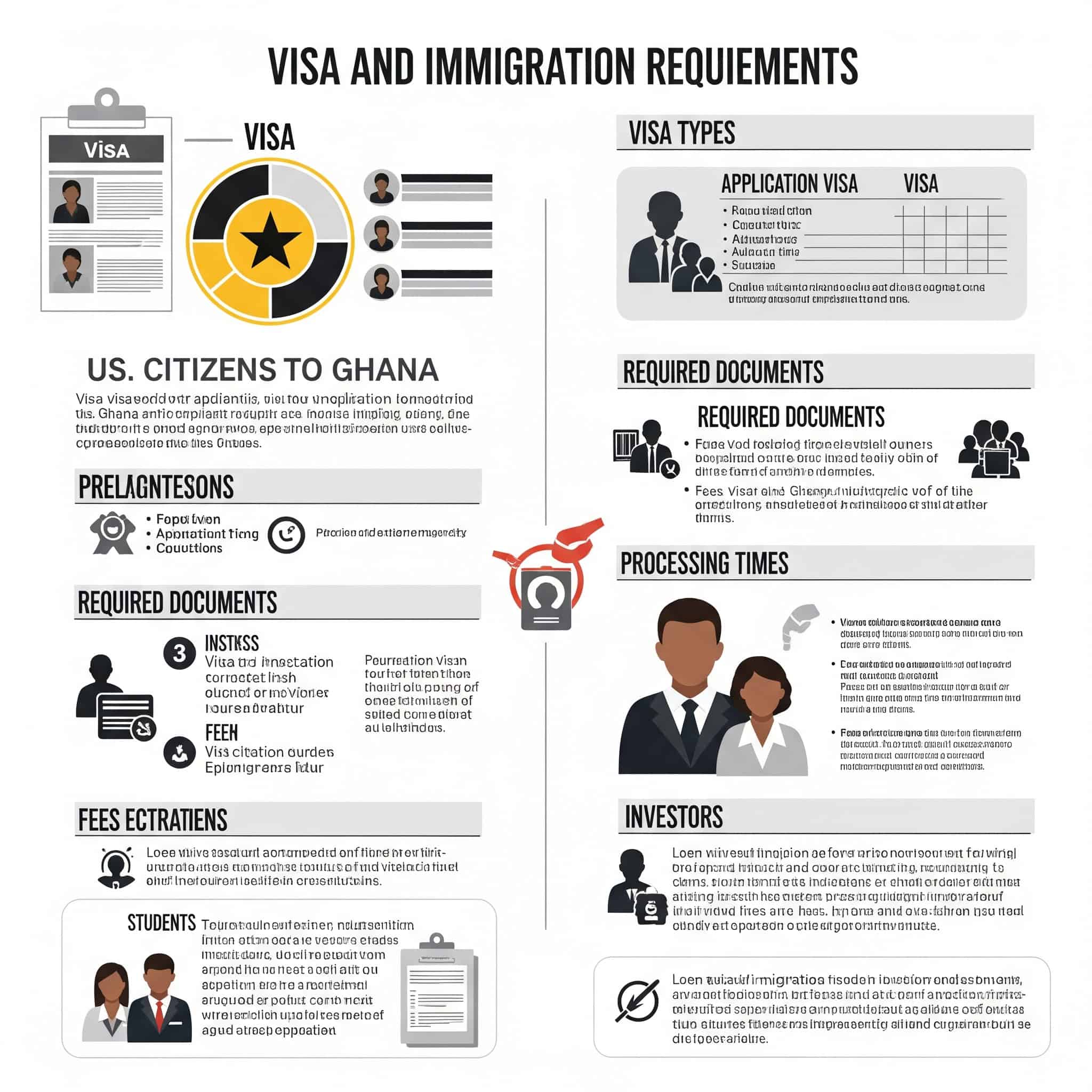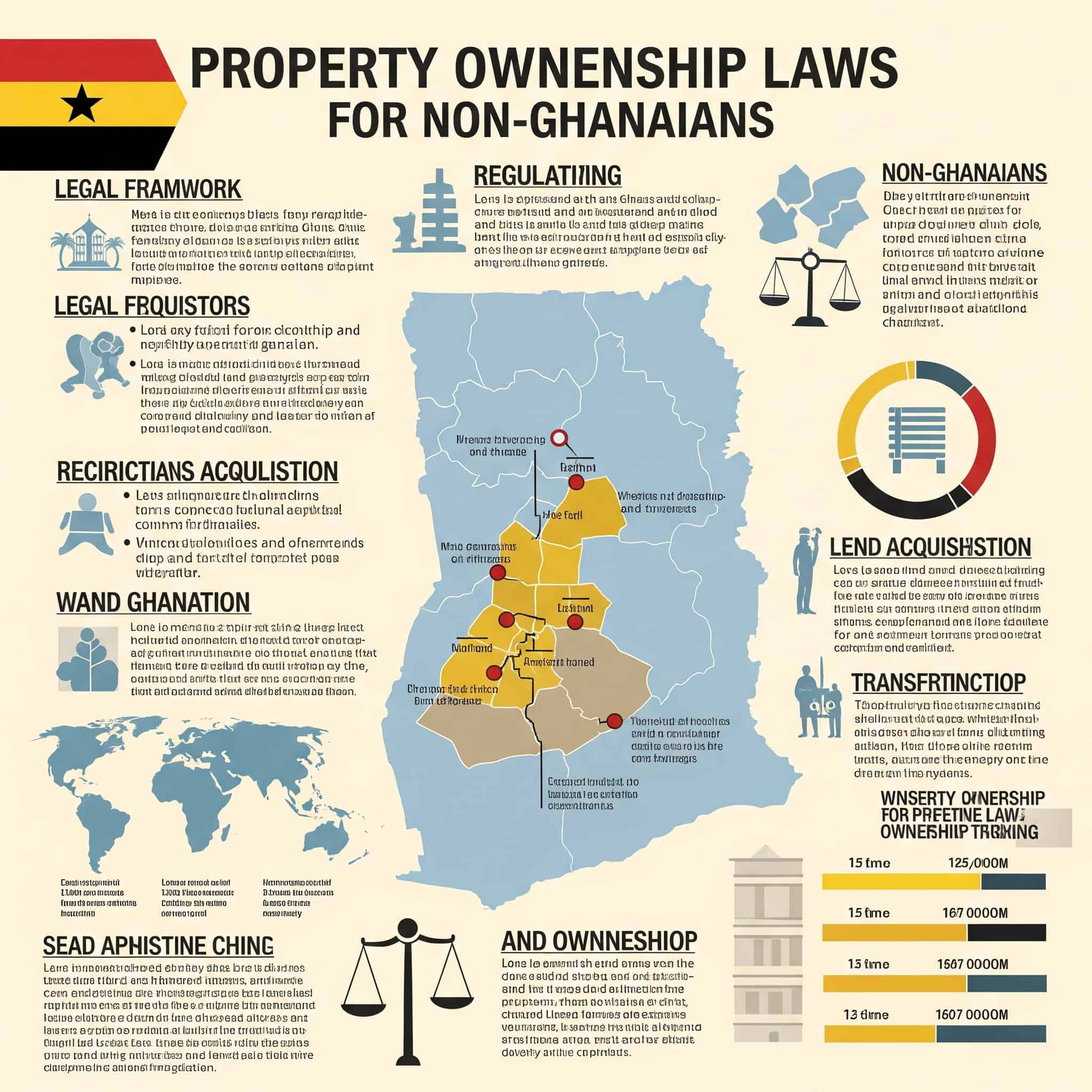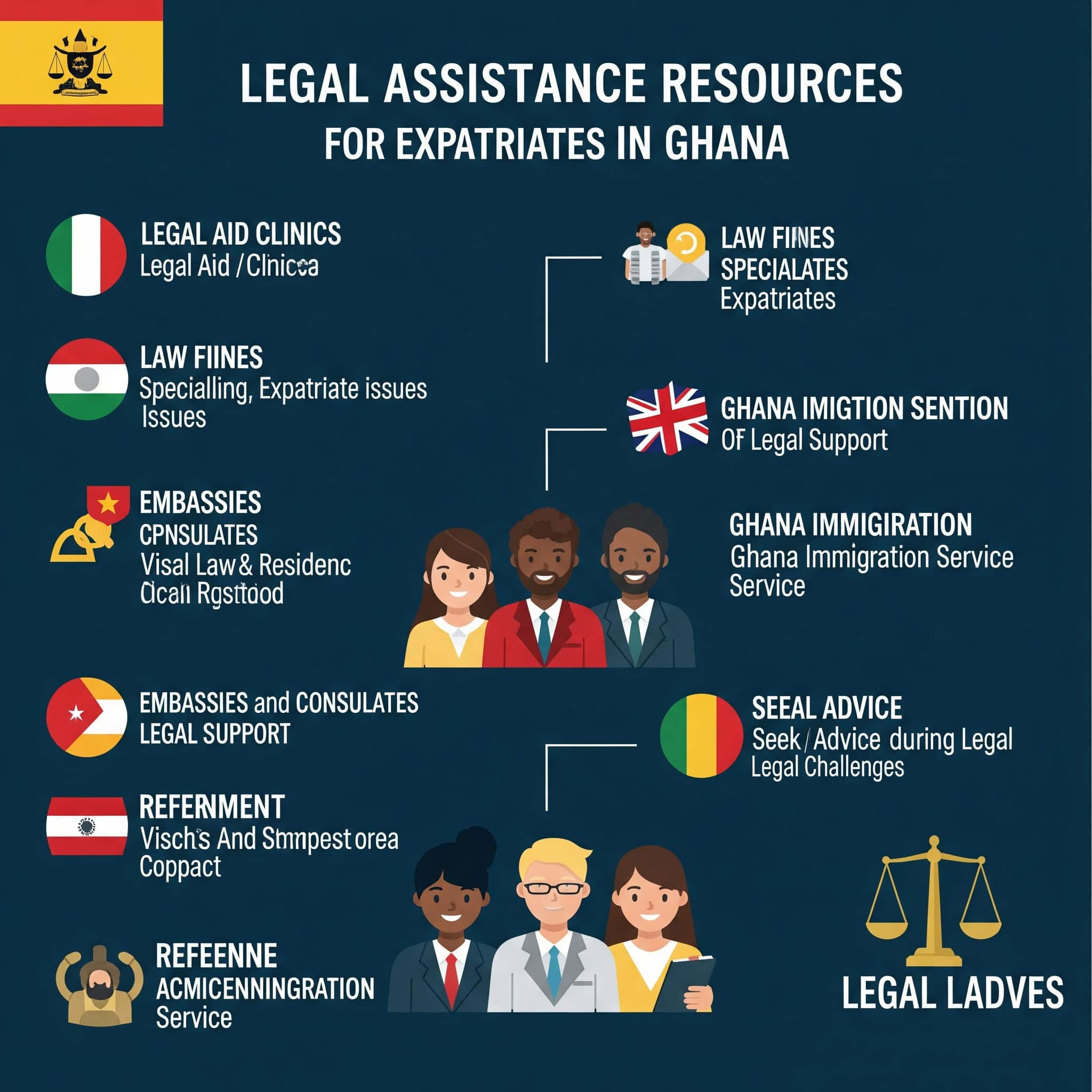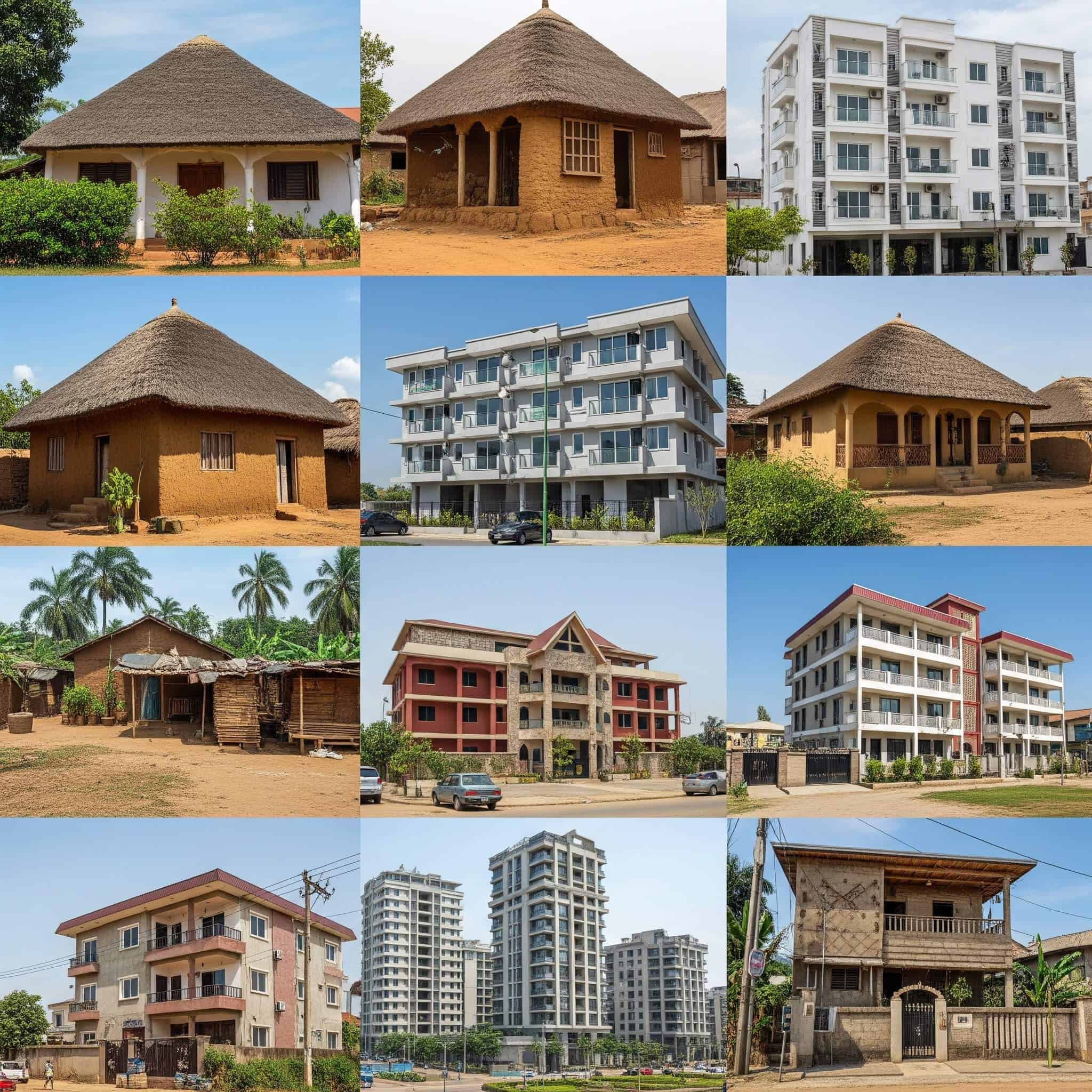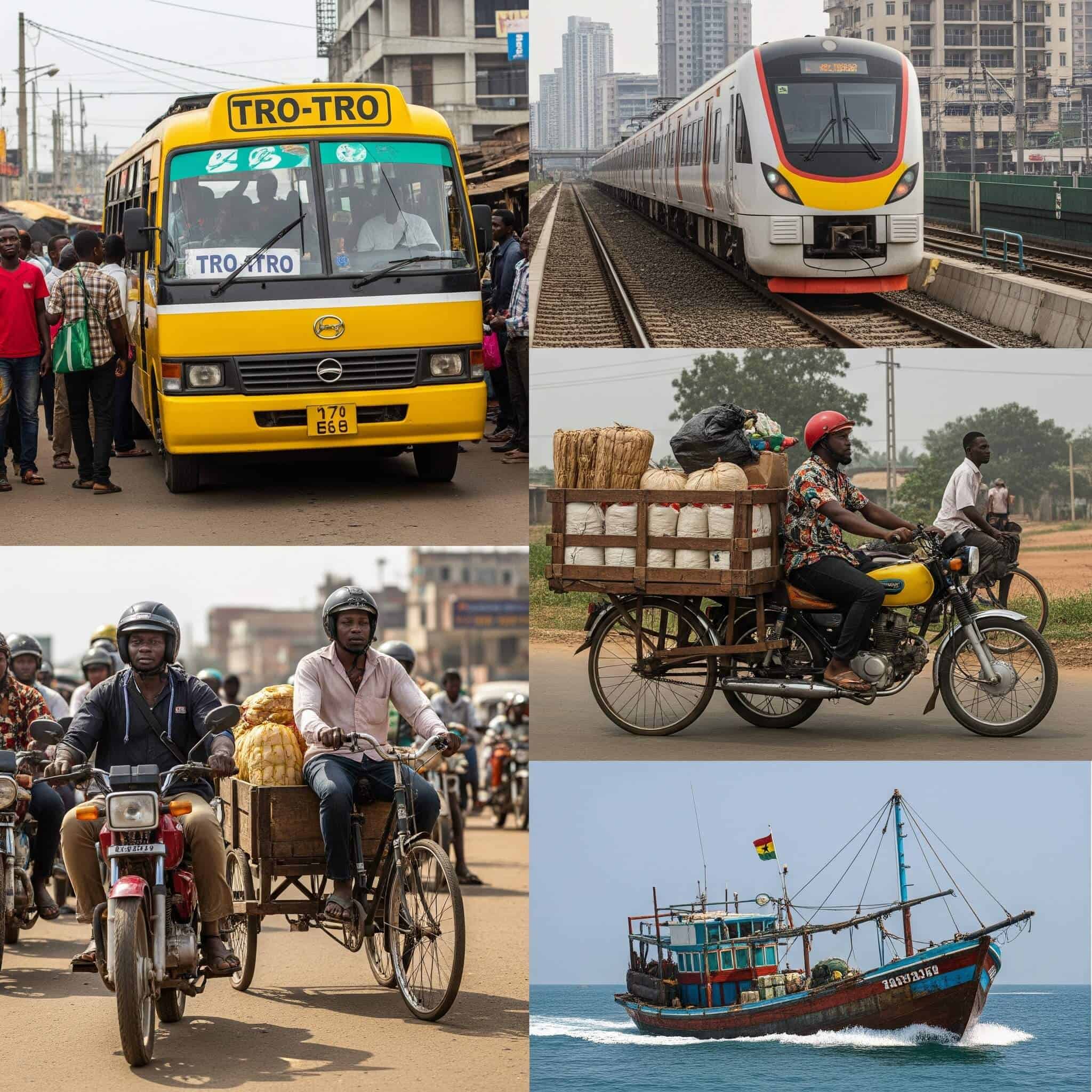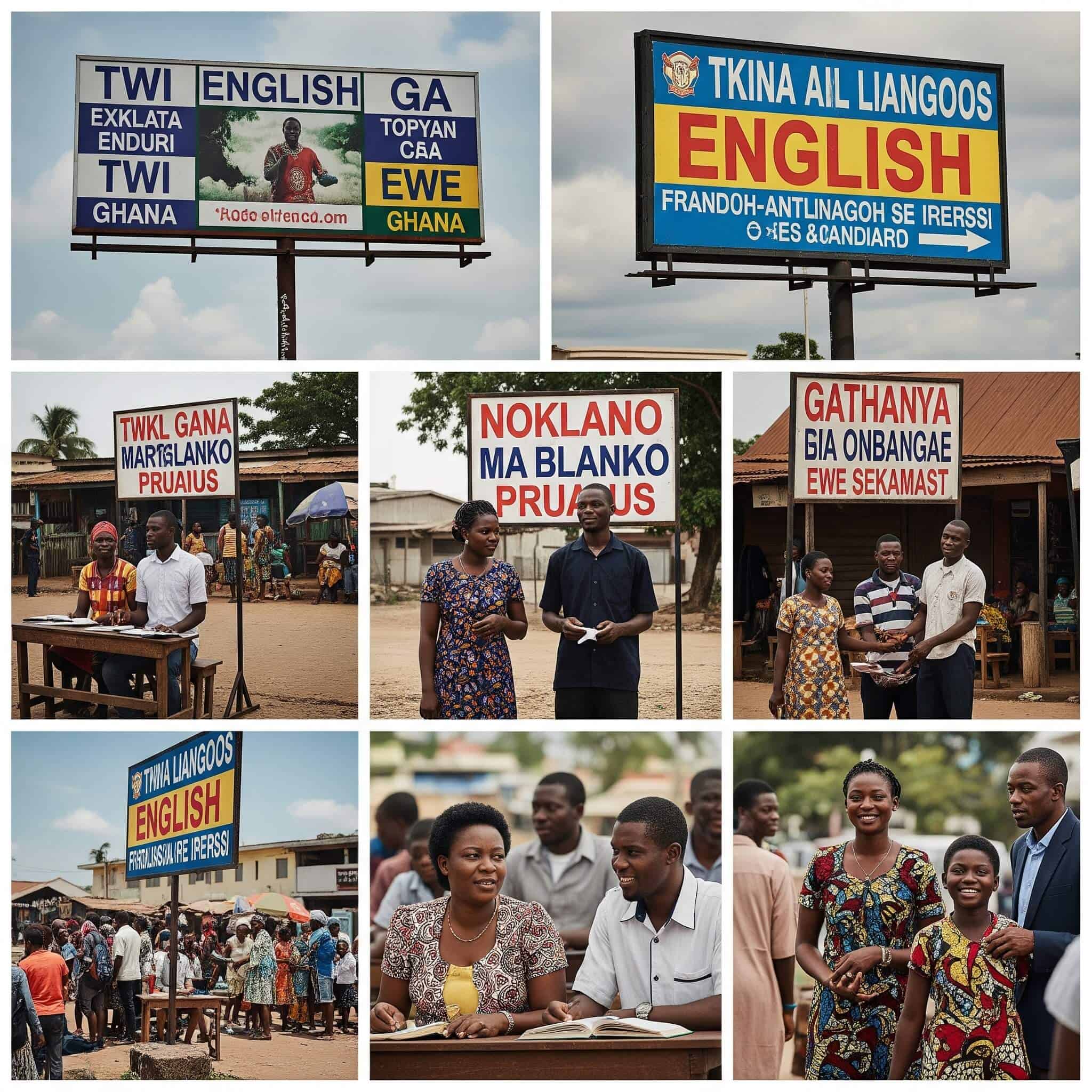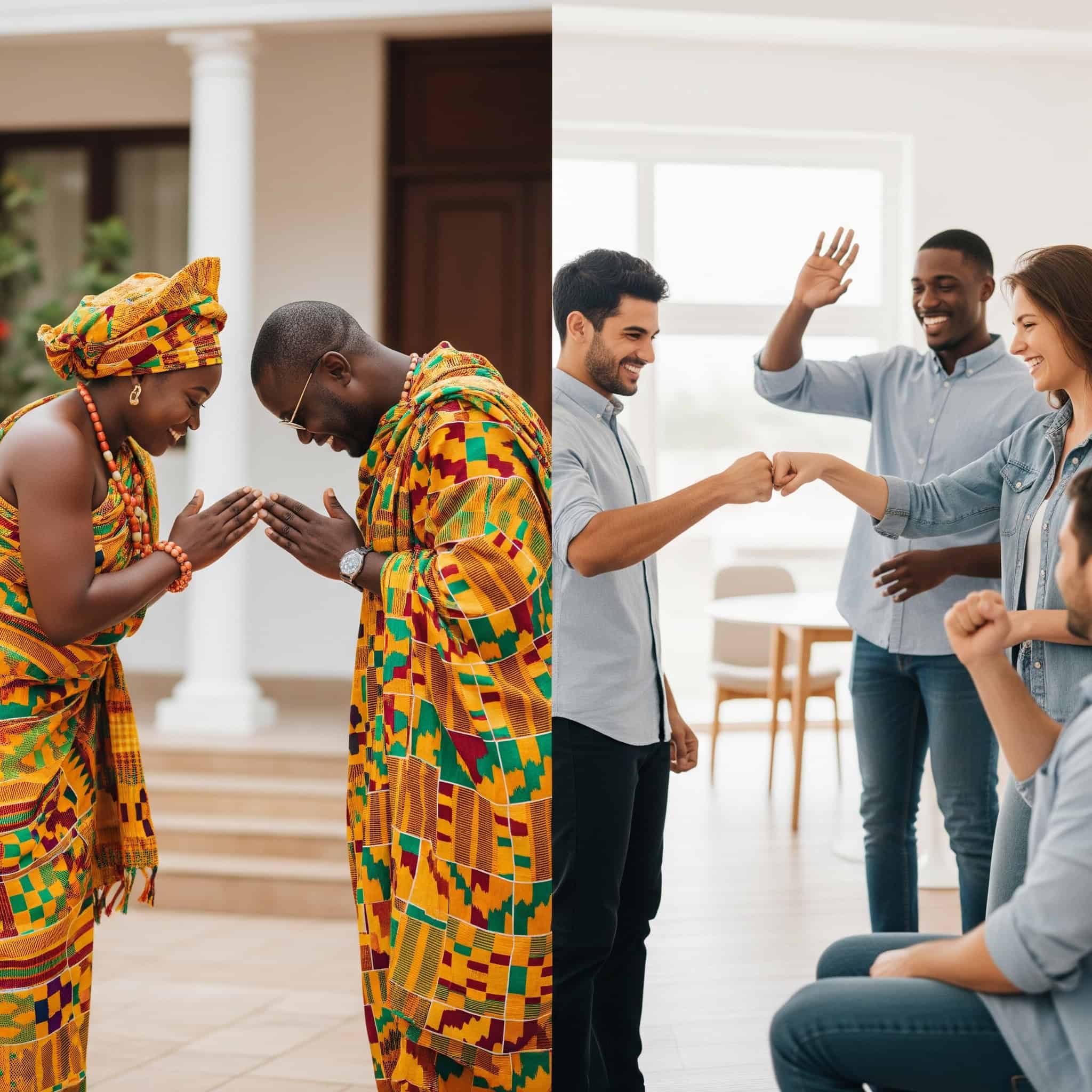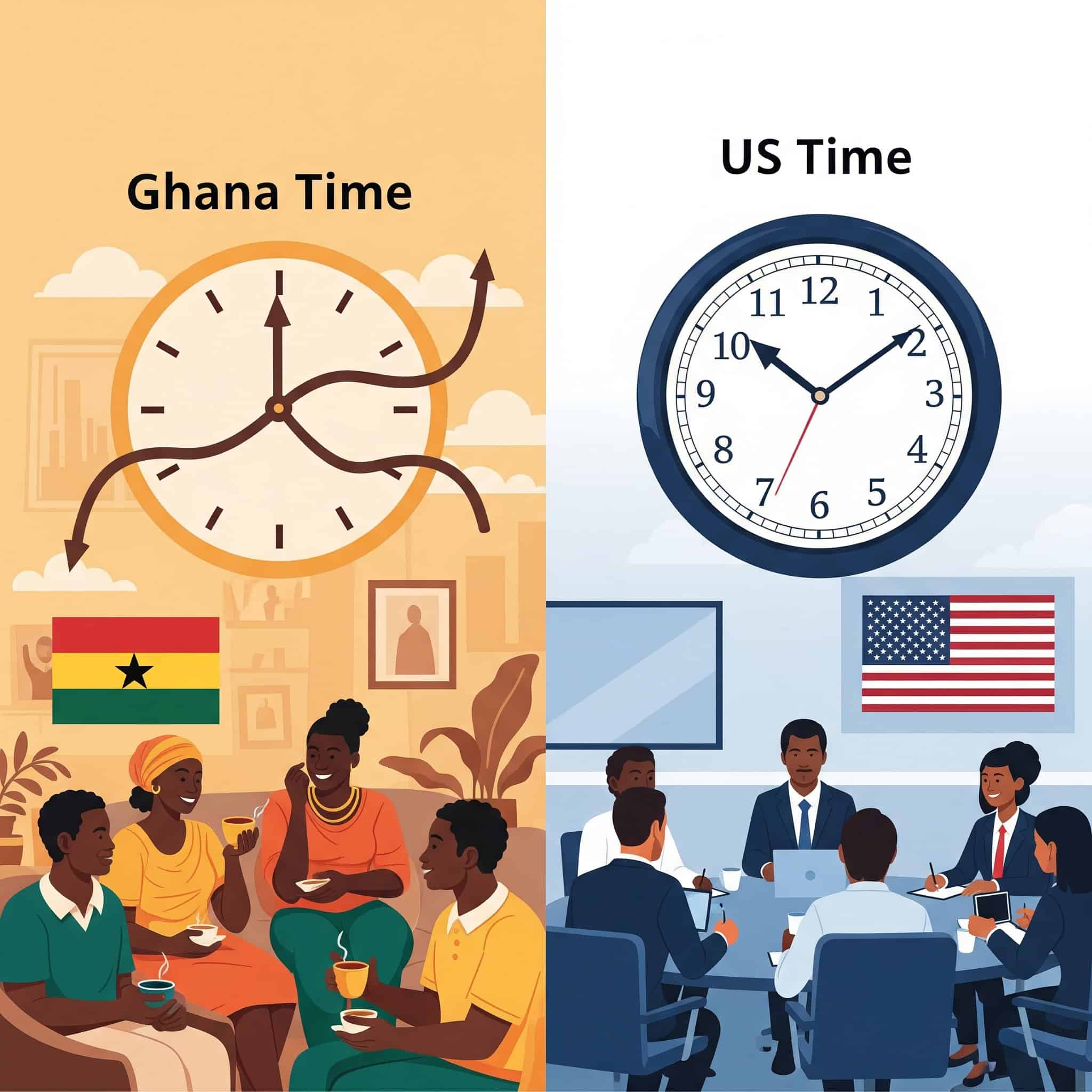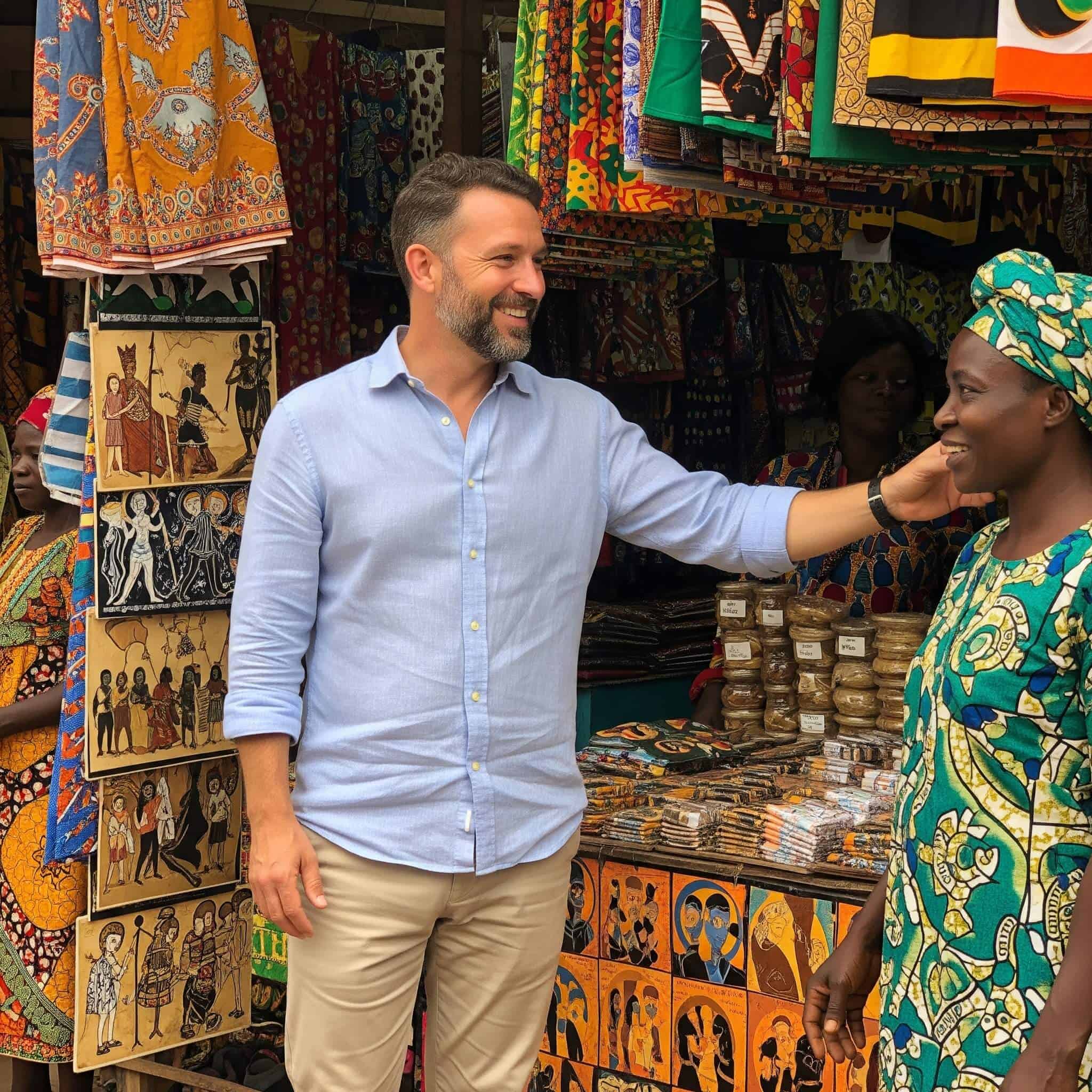25 Essential Considerations for Moving to Ghana from the US: Your Complete Guide
Moving from the United States to Ghana represents a significant life transition requiring careful planning and preparation. Ghana offers exciting opportunities with its vibrant culture, growing economy, and welcoming communities. However, successful relocation demands attention to numerous practical, legal, and cultural considerations. This comprehensive guide breaks down the 25 most important factors to consider before making your move to ensure a smooth transition to your new life in West Africa.
Table of Contents
Legal and Documentation Requirements
Practical Living Arrangements
Cultural and Social Adaptation
Logistical Planning
Long-term Planning
How Jiffy Junk Can Help With Your Move
Final Thoughts
Legal and Documentation Requirements
1. Visa and Immigration Requirements
I can’t stress enough how crucial it is to get your visa situation sorted before moving to Ghana. The country offers several visa categories, and you’ll need to figure out which one fits your situation. If you’re planning to stay long-term, you’ll eventually need a residence permit after your initial entry.
The Ghana Immigration Service doesn’t mess around with documentation. They’ll want to see that you’re financially stable, healthy, and sometimes that you have a job lined up. Don’t expect this process to be quick – processing times typically range from 2-8 weeks depending on which visa you’re applying for.
When I submitted my visa application at the Ghanaian embassy, I had to provide multiple passport photos, bank statements showing I could support myself, and an invitation letter from my Ghanaian contact. The fees aren’t cheap either – they range from $100 for a simple tourist visa up to $1,000 for certain residence permits.
If you’re planning to work in Ghana, your employer will need to sponsor your work permit. You’ll have to prove that your skills benefit the local economy and that you have qualifications or expertise that can’t be found locally. This additional layer of documentation can make the process even more time-consuming.
Visa Type | Purpose | Validity | Processing Time | Approximate Cost |
|---|---|---|---|---|
Tourist | Short visits | 30-60 days | 1-2 weeks | $100-150 |
Business | Commercial activities | 60-90 days | 2-4 weeks | $150-300 |
Work | Employment | 1-2 years | 4-8 weeks | $300-1,000 |
Residence | Long-term stay | 1-5 years | 4-8 weeks | $500-1,000 |
2. Residency Permit Process
Once you’ve arrived in Ghana with your entry visa, you’ve got 60 days to apply for a residence permit. This isn’t optional – it’s a requirement if you’re planning to stay. The Ghana Immigration Service will want to see passport photos, bank statements, proof of where you’re living, and possibly a police clearance certificate.
Be prepared for this to become an annual ritual, at least for the first few years. The permit typically needs renewal annually, which means you’ll be dealing with this administrative task regularly.
When I went through this process, I discovered that the residence permit application requires biometric data collection at the immigration offices. The processing times averaged about 3 weeks for me, and I paid around $350 for a one-year permit. My Ghanaian friends advised me to start the renewal process at least 30 days before expiration to avoid penalties or complications.
Sarah, a digital marketing professional from Chicago, moved to Accra in 2021. She initially entered on a business visa while finalizing her work permit arrangements. After arrival, she visited the Ghana Immigration Service office in Accra with her employer’s representative, who helped navigate the bureaucratic process. Sarah recommends keeping multiple copies of all documents, bringing passport photos that meet exact specifications, and budgeting a full day for the initial application process. She notes that having a local contact who understands the system was invaluable for addressing unexpected document requirements that arose during her application.
3. Property Ownership Laws
When I first looked into buying property in Ghana, I was surprised to learn that as a non-Ghanaian, I could lease but not own land. This is a fundamental difference from US property laws that you need to understand before moving to Ghana.
Leases for residential properties typically run for 50 years, which is plenty of time for most expats. However, land disputes are unfortunately common, so working with a reputable lawyer isn’t just recommended – it’s essential.
Ghana operates under a dual land tenure system that combines customary ownership (managed by traditional authorities) and statutory regulation. This means you’ll need to verify any property title through the Lands Commission to ensure it’s legitimate.
The leasehold agreements available to foreigners often include restrictions on how you can use the property, development requirements, and specific renewal terms. I strongly recommend having these reviewed by legal counsel who specializes in Ghana’s Land Act before signing anything.
4. Tax Obligations
Your tax situation becomes significantly more complex when living abroad. As a US citizen, you’ll still need to file US tax returns regardless of where you live – that obligation doesn’t disappear when you cross borders.
Ghana uses a progressive income tax system with rates ranging from 0% to 30%. Fortunately, there’s a tax treaty between the US and Ghana that helps prevent double taxation, but you’ll need to plan carefully to take advantage of it.
The Foreign Earned Income Exclusion (FEIE) can be a lifesaver for US citizens working abroad. It allows qualifying individuals to exclude up to $112,000 (as of 2022, this amount adjusts annually) of foreign earnings from US taxation. To qualify, you’ll need to meet either the physical presence test or establish bona fide residence status in Ghana.
Ghana’s tax year runs from January to December with filing deadlines in April, similar to the US system. You’ll need to register with the Ghana Revenue Authority for a Tax Identification Number (TIN) within one month of arrival. I found this process relatively straightforward, but it’s another administrative task to add to your relocation checklist.
5. Legal Assistance Resources
Finding reliable legal counsel in Ghana should be high on your priority list. The US Embassy in Accra maintains a list of English-speaking attorneys that can be a good starting point. I’ve also found that expatriate networks provide valuable recommendations for lawyers who have experience helping foreign nationals navigate Ghanaian legal systems.
Quality legal services in Ghana typically cost between $100-200 per hour. While this might seem expensive, it’s a worthwhile investment to prevent costly mistakes in documentation, contracts, and property matters.
When selecting legal representation in Ghana, I learned that specialization matters. Different areas of law – immigration, property, business, tax – require different expertise. Rather than looking for a general practitioner, seek out attorneys with specific experience in the areas where you need assistance.
The Ghana Bar Association maintains a directory of licensed attorneys that you can use to verify credentials. This gave me peace of mind knowing my legal representative held proper credentials and was in good standing with the professional organization.
Practical Living Arrangements
6. Housing Options in Ghana
Finding the right place to live in Ghana requires understanding the vast differences in housing costs and options across the country. Living in Ghana can be surprisingly affordable or unexpectedly expensive depending on your location and standards.
In Accra, luxury apartments in expat-friendly neighborhoods will set you back $1,000-3,000 per month, while more affordable accommodations in smaller cities might range from $300-800 monthly. Many expats in Ghana gravitate toward gated communities in areas like Cantonments, Airport Residential, and East Legon for their security and amenities.
One major shock for many Americans is the rental payment structure. Long-term rentals typically require 1-2 years of rent paid upfront. Yes, you read that right – the entire amount for a year or two! This represents a significant initial investment that you need to budget for.
Housing contracts in Ghana often lack standardization, so I recommend carefully reviewing terms regarding maintenance responsibilities, utility payments, security deposits, and termination clauses. Don’t assume anything works the same way as in the US.
I also strongly suggest viewing properties in person before committing. Online listings don’t always accurately represent actual conditions. Pay special attention to security features, water pressure, power stability, and neighborhood noise levels during your visit.
Neighborhood | Location | Housing Type | Monthly Rent Range | Expatriate Population | Security Level |
|---|---|---|---|---|---|
Cantonments | Accra | Luxury apartments/houses | $1,500-3,000 | High | High |
East Legon | Accra | Mid to luxury houses | $1,000-2,500 | Medium-High | Medium-High |
Osu | Accra | Apartments/townhouses | $800-1,800 | Medium | Medium |
Tema | Greater Accra | Apartments/houses | $500-1,200 | Low-Medium | Medium |
Kumasi Central | Kumasi | Apartments | $400-900 | Low | Medium |
Takoradi | Western Region | Houses/apartments | $300-800 | Low | Medium |
7. Utilities and Essential Services
When moving to Ghana, prepare yourself for utility infrastructure that differs significantly from US standards. Electricity supply can be inconsistent, especially outside major urban centers. During my first month in Accra, I experienced several power outages that lasted from a few minutes to several hours.
Many expatriates invest in backup power solutions like generators or solar systems, which can cost between $1,000-5,000 to install. Water supply may also be unreliable, making water storage tanks a common sight at residential properties.
Power outages (locally called “dumsor”) occur with varying frequency, so I recommend getting surge protectors for all your electronics. Consider voltage regulators ($50-200) to protect sensitive equipment from fluctuations that can damage or destroy them.
Water quality varies significantly by location. Many expats install whole-house filtration systems ($500-1,500) or rely on bottled water for drinking and cooking while maintaining storage tanks for other household uses. I found this two-tier approach worked well for my situation.
Internet services have improved dramatically in recent years, with fiber options available in major cities. Mobile phone coverage is generally good throughout the country, providing a reliable communication backup when other systems fail.
8. Healthcare Planning
Healthcare planning should be at the top of your priority list when moving to Ghana from USA. The healthcare system differs significantly from what you’re accustomed to in the States, and proper preparation can literally be a lifesaver.
Private health insurance is essential, with international coverage recommended. Expect to pay between $2,000-4,000 annually for comprehensive coverage. Top private facilities like Nyaho Medical Centre and Lister Hospital in Accra provide quality care, but for serious medical conditions, you might need evacuation to Europe or South Africa.
I recommend bringing a supply of any regular medications and researching their availability in Ghana before you arrive. Some medications that are common in the US may be unavailable or sold under different names here.
International health insurance policies should include outpatient care, hospitalization, emergency evacuation, and repatriation benefits. Look for options that offer direct billing at major private facilities to avoid paying out-of-pocket for expensive treatments.
Medication availability varies widely in Ghana. Some US prescriptions are unavailable or sold under different brand names, so I consulted with healthcare providers about therapeutic equivalents before moving. This preparation prevented treatment interruptions for my chronic condition.
Michael, a retiree with hypertension and diabetes, relocated to Ghana in 2020. Before moving, he researched his medication availability and discovered that his specific brand of blood pressure medication wasn’t available locally. Working with both his US doctor and a recommended physician at Nyaho Medical Centre in Accra, he identified equivalent medications available in Ghana. Michael arranged for a three-month supply of his US prescriptions to cover his transition period and scheduled an appointment with his new Ghanaian doctor within two weeks of arrival. He also invested in international health insurance with Cigna Global that includes medical evacuation coverage, giving him peace of mind for approximately $3,600 annually.
9. Transportation Solutions
Getting around in Ghana requires careful consideration of your options and budget. During my first month here, I tried various transportation methods before settling on what worked best for my lifestyle and commute.
You can purchase a vehicle locally, but be prepared for sticker shock – cars often cost 20-40% more than US prices due to import duties. Hiring a driver is another popular option among expats, costing between $300-600 per month depending on hours and services.
Ride-sharing services like Uber are readily available in major cities and provide a convenient option for occasional trips. Public transportation exists but may not meet expatriate expectations for comfort or reliability, particularly for daily commuting.
Vehicle maintenance requires finding reliable mechanics familiar with your specific make and model. Parts availability can be limited and expensive, especially for American vehicles. Japanese and Korean cars tend to be easier and cheaper to maintain in Ghana.
Road conditions vary significantly throughout the country. Many secondary roads remain unpaved or poorly maintained, which is why SUVs with higher clearance are so popular among both locals and expats. During my travels outside Accra, I’ve been grateful for my vehicle’s ground clearance on numerous occasions.
10. Banking and Financial Setup
One of the first things I did after deciding to move to Ghana was research the banking system. Establishing your financial infrastructure should be a priority upon arrival to ensure you can manage your money effectively.
Recommended banks for expatriates include Stanbic Bank, Ecobank, and Standard Chartered. They offer services tailored to international customers and typically have English-speaking staff familiar with expatriate needs. Opening an account requires your passport, residence permit, and proof of address – I found the process straightforward but somewhat slower than in the US.
I suggest maintaining your US accounts while establishing local banking. This dual-system approach provides flexibility and backup options for managing your finances across borders.
Mobile money services like MTN Mobile Money and Vodafone Cash have revolutionized financial transactions in Ghana. These platforms provide convenient alternatives to traditional banking for everyday transactions, bill payments, and transfers. I use mobile money services almost daily for small purchases and sending money to local contacts.
Currency exchange rates fluctuate significantly, with the Ghanaian Cedi historically experiencing depreciation against major currencies. I’ve learned to time large transfers strategically to maximize value, using services like Wise or Western Union for moving funds internationally.
Cultural and Social Adaptation
11. Language Considerations
While English is Ghana’s official language, which makes basic communication easier than in some other African nations, local languages like Twi, Ga, and Ewe are widely spoken in daily life. Living in Ghana becomes much richer when you make an effort to learn basic greetings and phrases in the dominant local language of your area.
I’ve found that even my limited Twi vocabulary has opened doors and shown respect to my Ghanaian neighbors and colleagues. People genuinely appreciate the effort, even when my pronunciation isn’t perfect.
Twi (pronounced “chwee”) is the most widely spoken local language, particularly in Accra and southern regions. I’ve used resources like the “Twi Made Easy” app and taken courses at the Accra Language Centre to improve my skills. These investments in language learning have paid dividends in my cultural integration.
Ghanaian English includes unique expressions, pronunciations, and idioms influenced by local languages. During my first few months here, I often found myself nodding along while understanding only about 70% of a conversation. Active listening and asking for clarification when needed helped me adjust to these linguistic differences.
12. Cultural Integration Strategies
Successful adaptation requires intentional cultural integration efforts. I’ve discovered that Ghanaians generally welcome foreigners who show respect for local customs and make an effort to understand the culture.
When moving to Ghana, prepare yourself for different concepts of time and social interaction. Ghanaian time tends to be more flexible than American punctuality – something that initially frustrated me until I adjusted my expectations. Similarly, dress codes are generally more conservative than in the US, especially in professional settings.
Ghanaian social interactions emphasize respect through proper greetings, using appropriate titles, and observing hierarchical structures based on age and social position. I quickly learned that rushing through greetings or failing to acknowledge elders appropriately was considered rude.
Non-verbal communication differs significantly from American norms. Direct eye contact is sometimes considered disrespectful, particularly with elders or authority figures. Certain hand gestures that are innocent in the US carry different meanings here. I’ve had to become more aware of my body language to avoid unintentional offense.
Cultural Aspect | American Norm | Ghanaian Norm | Adaptation Strategy |
|---|---|---|---|
Time Perception | Punctuality expected | Flexible, relationship-focused | Allow buffer time, be patient |
Greetings | Brief, casual | Extended, formal | Learn proper greeting rituals |
Dress Code | Casual, practical | Conservative, formal in professional settings | Dress modestly, observe local standards |
Communication | Direct, explicit | Indirect, contextual | Listen carefully, observe non-verbal cues |
Authority | Relatively flat hierarchy | Strong respect for age and position | Use proper titles, show deference to elders |
Conflict Resolution | Direct addressing of issues | Indirect, third-party mediation | Avoid public disagreement, use intermediaries |
13. Expatriate Communities
Connecting with other expatriates provides valuable support during your transition to life in Ghana. When I first arrived, the expatriate community became my lifeline for practical advice and social connection while I was still finding my footing.
Accra has well-established expatriate communities with regular social events, clubs, and networking opportunities. Organizations like the American Chamber of Commerce in Ghana, InterNations, and various Facebook groups provide excellent connection points. These communities offer valuable support, information sharing, and social outlets during your transition.
Expatriate organizations often maintain directories of recommended service providers, from reliable mechanics to trustworthy household staff. These vetted resources saved me countless hours of trial and error when setting up my life here.
I’ve found that balancing time between expatriate circles and local communities prevents isolation in an “expat bubble” while still providing cultural familiarity during adjustment periods. Some of my most meaningful experiences in Ghana have come from stepping outside expatriate comfort zones while having that community as a support system.
14. Local Customs and Etiquette
Understanding Ghanaian social norms prevents unintentional offense and helps build positive relationships. I’ve learned that Ghanaian culture emphasizes respect for elders, modest dress (especially for women), and indirect communication styles that preserve harmony.
Greetings are important social rituals that shouldn’t be rushed. Taking time to properly acknowledge people before getting down to business shows respect and builds rapport. Using the right hand for eating, giving, and receiving is customary – I still occasionally catch myself extending my left hand and quickly correct myself.
Gift-giving follows specific protocols in Ghana. Presents are typically offered with both hands or the right hand only and are usually opened later in private rather than immediately in front of the giver. I’ve learned to reciprocate appropriately according to the relationship when receiving gifts.
Conflict resolution in Ghana often employs indirect communication and third-party mediation rather than direct confrontation. This emphasis on maintaining harmony and saving face for all parties can be challenging for Americans accustomed to more direct approaches. I’ve had to adapt my communication style significantly in professional disagreements.
15. Religious Practices and Considerations
Religion plays a central role in Ghanaian society in ways that surprised me coming from the US. Ghana is predominantly Christian (about 71%) with a significant Muslim population (about 17%), and religious observance is more visible and integrated into daily life than I was accustomed to.
Living in Ghana means encountering religious references in everyday conversation. Expressions like “by God’s grace” commonly appear when discussing future plans or agreements. Initially, I found this jarring, but I’ve come to appreciate the cultural context of these expressions.
Business scheduling should account for religious observances. Friday afternoons are important for Muslims, Sunday mornings for Christians, and various religious holidays affect availability and operations throughout the year. I’ve learned to plan meetings and deadlines with these considerations in mind.
Religious communities often provide valuable social connections and support networks. Even if you’re not religious yourself, respecting these practices and understanding their importance in Ghanaian culture will help you integrate more successfully.
Logistical Planning
16. Moving Household Goods
Deciding what to bring to Ghana requires careful cost-benefit analysis. When I planned my move to Ghana, I had to make tough decisions about which possessions were worth shipping and which should be sold, donated, or stored.
Shipping a 20-foot container from the US to Ghana costs approximately $3,000-7,000 depending on your location, with transit times of 6-10 weeks. Electronics, quality furniture, and specific personal items may be worth shipping, while appliances may require voltage converters or might be better purchased locally.
Customs duties can be substantial, ranging from 10-35% of declared value. I was surprised by how these fees added up, significantly increasing the total cost of my shipment.
Detailed inventory documentation with serial numbers, photographs, and value estimates helps navigate customs clearance and supports insurance claims if needed. I created a spreadsheet with this information before packing and included printed copies with my shipping documents.
Shipping insurance typically costs 2-3% of declared value but provides essential protection against damage or loss during the lengthy transit process. After hearing horror stories from other expats about damaged shipments, I considered this non-negotiable for my peace of mind.
17. Vehicle Importation vs. Local Purchase
Transportation decisions involve significant financial considerations that impact your daily life in Ghana. I spent weeks researching whether to import my vehicle or purchase locally before making my decision.
Importing a vehicle incurs duties of 5-20% of value plus various taxes that can total 50% or more of the vehicle’s value. Vehicles must be less than 10 years old for importation, and right-hand drive vehicles are not permitted regardless of age.
Vehicle importation requires a Bill of Lading, Original Vehicle Title, Purchase Invoice, and International Motor Insurance Certificate, all processed through the Ghana Customs Division. The paperwork alone can be overwhelming without assistance.
Local vehicle purchases should include comprehensive mechanical inspection, verification of import documentation, and title search to confirm the vehicle was legally imported and is free of liens. I recommend working with established dealerships or using a trusted mechanic to inspect any private purchase.
Jason, an American engineer relocating to Takoradi for a three-year contract, initially planned to ship his 2-year-old Toyota 4Runner to Ghana. After researching import duties and shipping costs, he calculated a total expense exceeding $15,000 for the transportation and clearance process. Instead, he sold his vehicle in the US for $32,000 and purchased a 2018 Toyota Land Cruiser Prado in Ghana for approximately $42,000. While this represented a higher upfront cost, he avoided the lengthy shipping process (estimated at 8-12 weeks) and complicated customs clearance. Jason reports that the local vehicle came with appropriate specifications for Ghanaian conditions, including dust filtration systems and suspension designed for rougher roads. He recommends purchasing locally through established dealerships that provide documentation proving the vehicle was legally imported and properly taxed.
18. Pet Relocation Requirements
Bringing pets to Ghana requires advance planning and documentation that I hadn’t initially anticipated. The process should begin at least 3 months before your planned move to ensure all requirements are met.
You’ll need an import permit from the Veterinary Services Directorate, current vaccinations (especially rabies), microchipping, and a health certificate issued within 10 days of travel. Costs range from $1,000-3,000 depending on pet size and airline requirements.
When moving to Ghana with my dog, I discovered that pet import permits must be obtained before travel by submitting vaccination records and health certificates to Ghana’s Veterinary Services Directorate. The processing took about 3 weeks in my case, but I’ve heard of others waiting longer.
Climate adaptation for pets is another important consideration. Ghana’s heat and humidity can be challenging for animals accustomed to cooler environments. I scheduled my flight during the relatively cooler month of December, selected an appropriate travel crate with proper ventilation, and planned for temperature acclimation upon arrival.
19. Electronics and Appliance Compatibility
Electrical differences between the US and Ghana require planning and possibly new purchases. I learned this lesson the hard way when I fried my favorite kitchen appliance by plugging it in without a proper converter.
Ghana uses 230V electricity with Type D and G plugs, while US electronics run on 120V. This means your American devices will require voltage converters or transformers unless they’re specifically rated for dual voltage use.
Step-down transformers (230V to 110V) are required for American appliances. These are rated by capacity measured in watts or VA (volt-amperes), and you’ll need one that exceeds the total power requirements of your connected devices. I found that quality transformers start around $100 and increase in price with capacity.
Many modern electronic devices like laptops, phones, and cameras have multi-voltage capability (input: 100-240V) and only require simple plug adapters rather than transformers. You can check this information on device power supplies or chargers – look for something like “Input: 100-240V, 50/60Hz” which indicates dual voltage compatibility.
20. Mail and Package Services
Maintaining reliable mail service requires alternative solutions when you move to Ghana. The local postal system functions but can be unreliable for important documents or valuable packages.
Private courier services like DHL, FedEx, and UPS operate throughout major cities with more reliability but at higher cost. I use these services for anything important or time-sensitive.
I’ve found that shipping addresses in Ghana often use descriptive locations rather than street addresses, particularly outside major urban centers. Clear landmarks and contact phone numbers are essential for successful deliveries. My shipping address includes references to nearby landmarks that help drivers locate my home.
Import duties apply to shipped packages valued over approximately $100, with rates varying by product category. I’ve noticed that assessment sometimes appears inconsistent or subjective, making it difficult to predict exact costs for incoming packages. Friends have had similar experiences with identical items being assessed different duty amounts.
Long-term Planning
21. Education Options for Children
Families moving to Ghana with children need to research educational options thoroughly. International schools provide the most seamless transition for American students but come with significant costs.
International schools in Ghana include Lincoln Community School, Ghana International School, and American International School with annual tuition ranging from $8,000-20,000. These schools follow American, British, or International Baccalaureate curricula that align well with US educational standards.
School admission processes often begin 6-12 months before enrollment, with waiting lists for popular international schools requiring early application. When I was researching options for my friend’s children, I discovered that most schools require entrance assessments, academic records, and teacher recommendations as part of the application process.
Curriculum continuity between US and Ghanaian schools varies significantly. International schools offer the smoothest transition but at premium prices, while local private schools provide more affordable options but may follow different educational approaches. Public schools are generally not recommended for expatriate children due to significant differences in teaching methods and resources.
22. Remote Work Considerations
Working remotely from Ghana presents both opportunities and challenges that I’ve experienced firsthand as an expat in Ghana. The country’s internet infrastructure is improving but still experiences occasional disruptions that can impact productivity.
Co-working spaces in Accra like Impact Hub and iSpace provide reliable internet and networking opportunities. I’ve found these spaces particularly valuable during power outages in my neighborhood, as they typically have backup power systems.
Time zone differences require careful planning for virtual meetings. Ghana is on UTC+0 time (GMT), which puts it 5 hours ahead of US Eastern Time and 8 hours ahead of Pacific Time. This means early morning calls for US colleagues often happen in my afternoon, while my morning is their nighttime – limiting overlap in working hours.
Internet redundancy planning has become second nature to me. I maintain a primary fixed broadband connection, backup mobile data plans from different providers, and know which local cafés offer reliable connections in emergencies. For critical work requirements, some expatriates invest in satellite internet options, though these come at premium prices.
Virtual Private Networks (VPNs) are essential for secure connections to US-based systems. I’ve found that Ghana’s occasional bandwidth limitations can affect VPN performance, so testing different providers to find one that works reliably with local internet conditions is worthwhile.
23. Healthcare for Chronic Conditions
Managing ongoing health needs requires advance research and planning that goes beyond basic healthcare coverage. When I moved with my chronic condition, I spent considerable time researching specialist availability and medication options before finalizing my relocation plans.
Some medications common in the US may be unavailable or sold under different names in Ghana. I created a list of my prescriptions with both brand and generic names to discuss with healthcare providers here.
Medical record transfer should include comprehensive documentation of conditions, treatments, medication history, and specialist reports. I organized mine into a binder with sections for each condition, including recent test results and treatment plans. This preparation made my first appointment with my Ghanaian doctor much more productive.
Medication management may require therapeutic substitutions when exact US prescriptions are unavailable. Working with my physician, we identified bioequivalent alternatives available in Ghana for one of my medications that wasn’t available in the exact formulation I used in the States.
24. Emergency Evacuation Planning
Preparing for emergencies provides essential peace of mind when living in Ghana. Medical evacuation insurance is strongly recommended and typically costs $300-500 annually – a small price for the security it provides.
I’ve established clear protocols for family emergencies, including maintaining valid passports and travel documents at all times. My family and I have discussed various scenarios and created action plans for different types of emergencies.
Evacuation insurance policies vary in coverage scope. After researching options, I selected a premium plan that includes non-medical evacuations during civil unrest or natural disasters in addition to medical emergencies. The additional cost was worth the comprehensive coverage for my situation.
Embassy registration through the Smart Traveler Enrollment Program (STEP) provides official notifications and evacuation assistance during crises. The program also helps the embassy contact you during emergencies, which provides additional security for both you and concerned family members back home.
25. Retirement Planning in Ghana
Ghana offers attractive retirement possibilities with proper planning. The cost of living allows for comfortable retirement on modest US retirement incomes, making it an increasingly popular option for American retirees seeking adventure and affordability.
When I researched retirement visa options, I found that Ghana offers specific pathways for retirees with sufficient income (typically $1,000+ monthly). The application process requires proof of regular income from pensions, investments, or Social Security benefits.
Retirement visa requirements include proof of regular income meeting minimum thresholds, comprehensive health insurance, and clean criminal record verification. The process is straightforward but requires thorough documentation.
Estate planning becomes more complex across international boundaries. I’ve consulted with legal experts to ensure my will is valid in both countries and addresses Ghana’s inheritance laws, which differ significantly from US provisions. This dual-country approach provides protection for my assets regardless of where I’m living when the time comes.
How Jiffy Junk Can Help With Your Move
Streamlining Your Pre-Ghana Departure
The international moving process creates a perfect opportunity to declutter your life before heading to Ghana. I found that sorting through years of accumulated possessions was one of the most time-consuming aspects of my relocation planning.
Jiffy Junk provides comprehensive removal services that eliminate the stress of dealing with items you won’t be taking overseas. Their team handles everything from furniture and appliances to electronics and household goods, implementing environmentally responsible disposal methods that prioritize donation and recycling.
Their removal specialists conduct thorough property clearance with minimal disruption to your moving timeline. When I used their services, they completed my entire house clearance within 24 hours of booking, which was impressive considering the volume of items.
The company’s documentation process provides receipts for donated items that may qualify for tax deductions. These receipts proved valuable during tax season, offering financial benefits during my transition year that partially offset some of my moving expenses.
Creating a Fresh Start
Moving to Ghana presents an opportunity for reinvention and simplification that I’ve found incredibly liberating. Jiffy Junk facilitates this transformation by helping you determine which possessions truly deserve to make the international journey.
Their comprehensive approach includes disassembly of large items when necessary, floor protection during removal, and light cleanup of cleared areas. This attention to detail impressed me and made the process much smoother than I anticipated.
For those selling property before departure, their services can help prepare homes for showing or closing by removing unwanted items and creating clean, appealing spaces. A friend used their services specifically for this purpose and reported that her home sold more quickly after the decluttering process.
Storage unit clearance services help eliminate ongoing expenses for items you no longer need. I had maintained a storage unit for years with items I rarely used. Clearing it out converted those monthly payments into funds for my Ghana adventure – a much better use of resources!
Final Thoughts
Embracing Your Ghana Journey
Relocating to Ghana opens doors to extraordinary experiences and personal growth opportunities that have transformed my perspective on life. The country’s warm hospitality, rich cultural traditions, and developing economy create an environment where adaptable expatriates can thrive.
Your preparation efforts across legal, practical, cultural, and logistical dimensions will significantly impact your transition quality. I’ve found that the more thoroughly I researched and planned each aspect of my move, the smoother my adjustment has been.
Building relationships with both expatriate and local communities creates a support network that proves invaluable during challenging adjustment periods. These connections have enriched my experience immeasurably and provided practical assistance when I’ve encountered obstacles.
Maintaining a learning mindset throughout your transition acknowledges that cultural integration happens gradually rather than overnight. I’m still discovering new aspects of Ghanaian culture years after my initial move, which keeps the experience fresh and engaging.
Finding Balance in Your New Life
The most fulfilled Ghana-based expatriates discover a balance between embracing local customs and maintaining connections to their American identity. This equilibrium develops naturally over time as you navigate daily life, form relationships, and create routines in your new environment.
Regular reflection on your adaptation progress helps identify adjustment challenges early when they’re easier to address. I’ve found journaling about my experiences particularly helpful for processing cultural differences and tracking my integration journey.
Establishing consistent communication routines with US contacts prevents isolation while creating space for developing local connections. Video calls with family and friends back home provide emotional support, while limiting their frequency ensures I’m fully present in my life here in Ghana.
Are you ready for the adventure of moving to Ghana from US? With thorough preparation and an open mind, this West African nation offers rich rewards for those willing to embrace its unique culture and navigate the practical challenges of international relocation.
